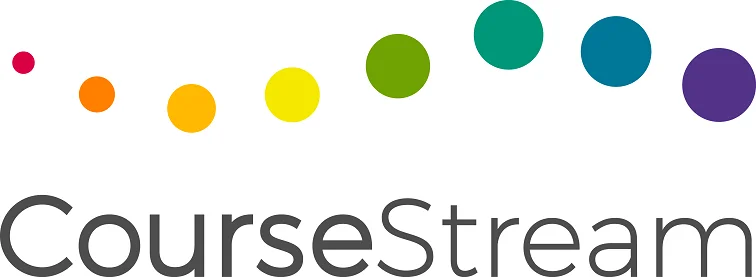Why Study this Human Nutrition Well-Balanced Diet Course?
If you want to learn more about human nutrition or if you want to prepare a well-balanced diet, this online human nutrition well-balanced diet course is that and more!
This course will give you the needed theoretical and practical knowledge and skills needed in order to understand the human nutrition and the different ways to maintain a healthy body. Such as the different nutrition values found on food, how food processing affects nutrition, the different types of vitamins and minerals, how to plan a balanced diet, the way to time meals depending on one’s needs, and more.
Home Study Human Nutrition Course
This course covers the elements of vitamins and minerals and teaches you how to develop a well balanced diet. It can be taken alone or to build on the information learned in Nutrition I.
Course Outline:
There are 8 lessons in this course:
- Cooking and it’s Effect on Food and Nutrition
- The Nutritive Value of Food after Cooking
- Meat and Poultry
- Fish
- Plant Foods – fruits, vegetables, cereals, pulses
- How different methods of cooking and processing effects nutrients in food
- Baking
- Blanching
- Braising
- Grilling
- Poaching and Boiling
- Pressure Cooking
- Roasting
- Sautéing
- Steaming
- Preparing and Cooking Vegetables and nutrient loss management
- The benefits of cooked food
- Preserving the nutrition in food
- Key points for preserving different vitamins
- Set task
- Assignment
- Food Processing and Nutrition
- Introduction
- Canning and pasteurisation
- Homogenisation and pasteurisation of milk
- Milling and grain processing
- Flours
- How processing affects dietary carbohydrate and fiber
- Effect of wet-heat treatments
- Why do simple carbohydrates leech when wet-heat treated
- Effect of food processing on starch and cellulose
- Fiber in processed flour
- Freezing
- Dehydration
- Effect of soils and fertilisers on food nutritive qualities
- Food additives
- Preservatives –salting, pickling, curing, smoking etc.
- Food allergies
- Flavouring agents
- Additives to enhance colour and appearance
- Sweetening agents
- Emulsifying agents and stabilisers
- Anti caking agents and humectants
- Set task
- Assignment
- Recommended Daily Intakes of Nutrients
- Recommended daily intake
- Adequate intake
- Tolerable Upper limits
- Estimated average requirement
- Macronutrient intakes
- RDI for Energy and Protein
- Fats
- AI for Fluids or water
- AI and TUL for dietary fibre
- Requirements for vitamins
- Requirements for Minerals
- Set task
- Assignment
- Vitamins
- Hypervitaminosis and hypovitaminosis
- Fat soluble vitamins
- Vitamin A –role, sources, deficiency, toxicity, etc.
- Vitamin D –overview, sources, deficiency, toxicity, etc.
- Vitamin E
- Vitamin K
- Fat soluble vitamins
- Vitamin C
- B group vitamins
- Water soluble vitamins
- Vitamins and the liver
- Vitamins and the bowel
- Vitamins, cancer and chronic diseases
- Set task
- Assignment
- Minerals
- Calcium –role of, deficiency, toxicity, calcium sources, etc
- Iodine
- Iron
- Magnesium
- Phosphorus
- Potassium
- Sodium
- Other trace elements – chromium, manganese, molybdenum, selenium, Zinc
- Set task
- Assignment
- Planning a Balanced Diet
- Introduction
- Menu Planning
- Case Study – A day’s diet at a residential school
- Plate waste
- Assessing plate waste
- Using a food pyramid
- Steps for approaching diet planning
- Set task
- Assignment
- Assessing Nutritional Status and Needs
- Information
- Infants and young children
- Adolescents
- Expectant mothers Post partum and nursing mothers
- Elderly people
- Migrants
- Vegetarian – Diet considerations: protein, amino acids, iron Vitamin B12, Vitamin D, etc.
- Vegan diets and children
- Weight change and snacking
- Set task
- Assignment
- Timing Meals and Needs of Special Groups
- Introduction
- Diet formulation
- Obesity
- Coronary heart disease
- Dietary risk factors
- Blood cholesterol
- Blood pressure
- Dental cavities
- Dietary fibre and bowel disease
- Diet therapy
- Low energy diet
- Diabetes
- Gastric Diets
- Gluten free diets
- Low salt, low sodium diets
- Low fat diets
- Diets to lower cholesterol
- Set task
- Assignment
Enrol Now
- Experienced Tutor support
- Certificate sent to you
- Online study (Printed notes available)
- Self paced - no set timetable
- 12 months to complete course
From: $35.00 / week for 19 weeks






Get a Free Info Pack!










